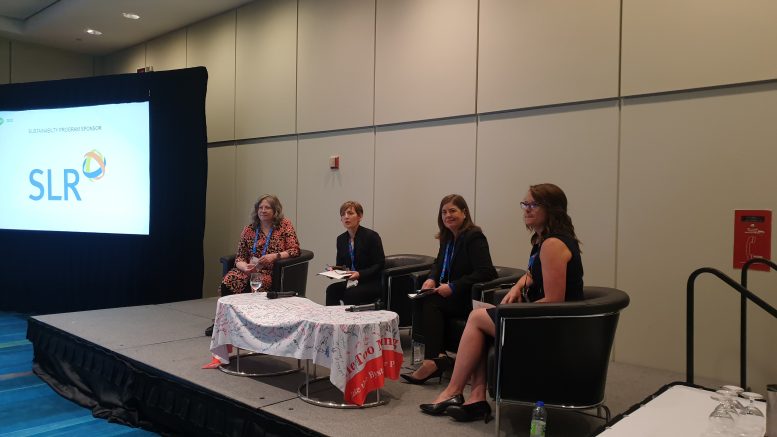Rio Tinto (NYSE: RIO; LSE: RIO; ASX: RIO) is designing new reporting mechanisms for its employees and training modules for top leaders to spot “unacceptable” behaviours in the workplace, the company said four months after the release of a report that revealed patterns of racism, sexism and harassment among its global workforce.
Carolyn Chisholm, director of Rio Tinto’s external affairs, said that the company made a “conscious effort” to assess the situation before beginning to fix the issues brought out by the report.
“As a company made up of engineers, we want to get stuff done…but it was conscious on part of the team that we take our time and that we are uncomfortable with the uncomfortable because that’s when we are going to do something about it,” said Chisholm in a session at PDAC 2022 on June 13.
“We are in the process of really trying to figure out a thoughtful, comprehensive, and inclusive way on how we act on the 26 recommendations (from the report),” she added. “It’s like designing engagements on projects with First Nations and making sure you do it right and it takes time. We are trying to co-design those elements right now.”
Rio Tinto launched a survey in March of last year that was answered by about 10,000 employees. Released in February, the results showed that about 30% of women and 7% of men at the company had been sexually harassed at work. Of them, 21 female workers also reported cases of actual or attempted rape or sexual assault.
Nearly half of all employees who responded to the Rio Tinto-commissioned external review of the miner’s workplace culture said they had been bullied, while racism was found to be a common issue across several areas.
The move was part of an ongoing effort to clean up the company’s tainted image following its destruction of two 46,000-year-old sacred rock shelters in Western Australia in 2020 while working to expand an iron ore mine.
Chisolm said that the company plans to make changes through three pillars, the first of which will require the company’s leaders to go through an “extensive leadership program.”
“They pull us apart and put us back together again… to make that cultural change you have to have leaders that have the skills to pick out the behaviours that are unacceptable and to be in a position to create that sense of trust and safe space to have those difficult conversations,” she said.
The company director also said that during the survey work Rio Tinto learned that many people didn’t trust its processes and procedures.
“We didn’t have people experienced to deal with and pick out trauma and respond to it accordingly. We are in the process of standing that up and making sure we have those trained experts,” she said.
Days after the release of the survey, the Mining Association of Canada, which includes about 50 of Canada’s top mining companies, said that it would introduce measures to propel its members to be “more transparent” on issues like sexual harassment and discrimination by the end of 2022.
Rio Tinto aims to conduct a similar survey in 2024.


Be the first to comment on "PDAC 2022: Rio Tinto unveils changes following workplace survey that uncovered racism, harassment "